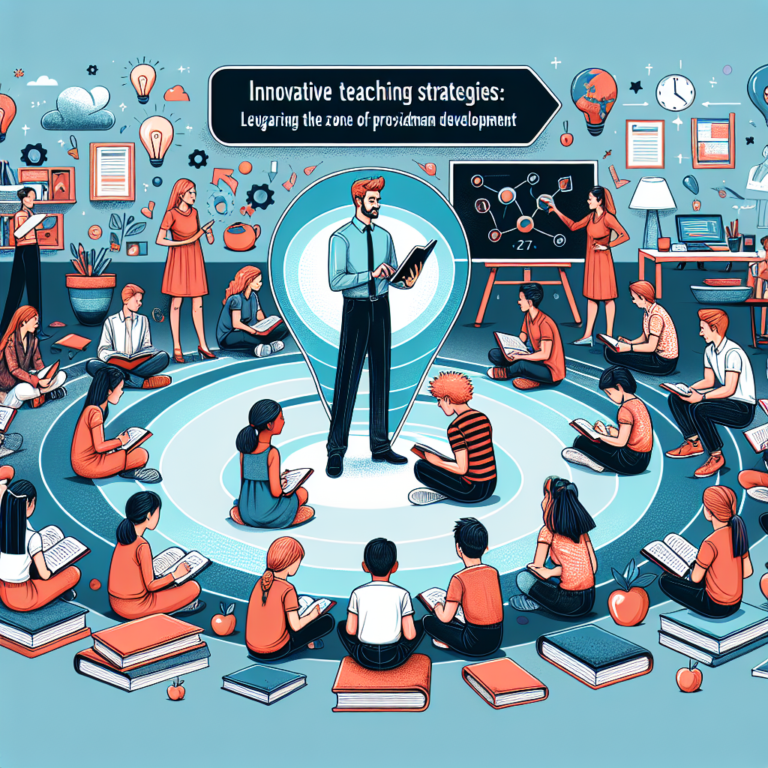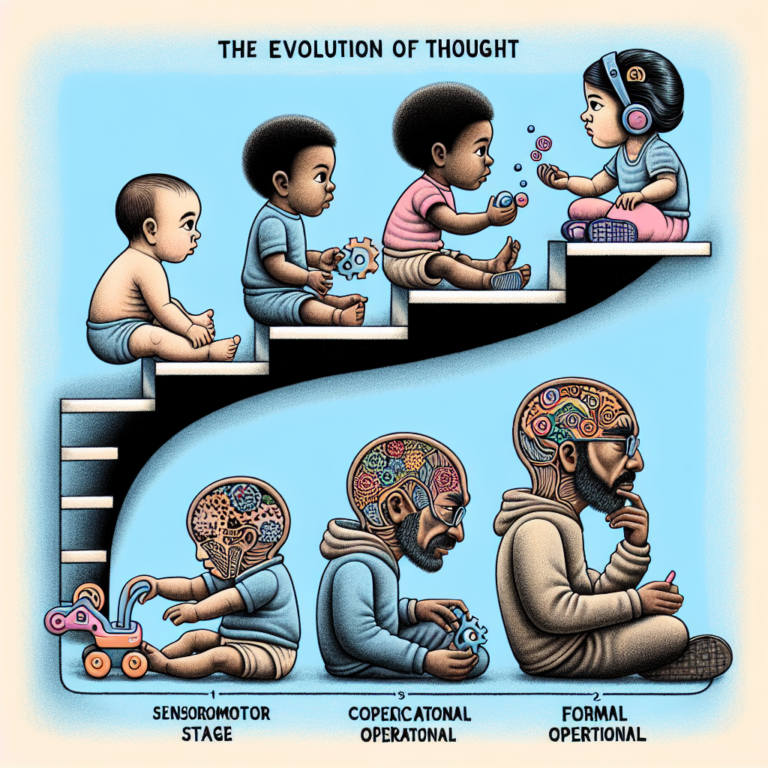
Introduction
Imagine standing at the crossroads of potential and achievement. What if you had a tool that could enhance your learning experience, making every study session more effective and every assignment more insightful? This tool exists—and it’s called metacognition. Often described as "thinking about thinking," metacognition is a crucial component that empowers students and learners alike to take control of their educational journeys. This article will unravel the intricate layers of Metacognition: The Secret Ingredient for Academic Success, exploring its profound implications on learning processes, academic performance, and overall cognitive growth.
Understanding Metacognition
What is Metacognition?
At its core, metacognition refers to a set of skills that help individuals monitor and regulate their learning. It encompasses two main components:
Metacognitive Knowledge: This involves awareness of one’s own learning processes. For example, knowing which study techniques work best for you, understanding the difficulty of a subject, or recognizing your own strengths and weaknesses in learning environments.
- Metacognitive Regulation: This refers to the ability to manage and adjust one’s learning strategies in real-time. It includes planning how to approach a learning task, monitoring comprehension during a task, and evaluating the effectiveness of strategies after completing a task.
Why is Metacognition Essential?
The significance of metacognition in academic settings cannot be overstated. Research shows that students who engage in metacognitive practices perform better academically. They develop deeper understanding, improve problem-solving skills, and become more independent learners. Specifically, Metacognition: The Secret Ingredient for Academic Success serves as a pivotal asset in:
- Enhancing retention of information
- Improving critical thinking skills
- Fostering a positive attitude toward learning
The Benefits of Metacognition
1. Enhanced Learning Efficiency
One of the primary advantages of metacognitive strategies is heightened learning efficiency. By recognizing which methods are most effective for them, students can conserve time and energy and focus only on what works.
Case Study: A study at the University of California involved two groups of students. One group received training on metacognitive strategies, while the other did not. Results showed that students who practiced metacognition achieved higher grades and spent significantly less time studying.
2. Improved Self-Evaluation
Students skilled in metacognition can accurately assess their understanding and performance. They are better equipped to identify gaps in their knowledge and seek help when necessary.
Case Study: In a high school setting, a group of students was guided to use self-evaluation checklists after each assignment. This led to an increase in awareness regarding their strengths and weaknesses, resulting in improved grades from B’s to A’s over a semester.
3. Increased Motivation and Engagement
Engaging with metacognitive practices helps learners develop a sense of ownership over their education. This increased involvement often translates into greater motivation.
Case Study: A group of college freshmen was introduced to reflective journals as part of their course. This approach fostered a unique way for them to express their learning processes, leading to a noticeable boost in their overall enthusiasm and participation.
4. Development of Lifelong Learning Skills
The ability to think about one’s thinking creates a foundation for lifelong learning. As students grow and face new challenges, metacognitive skills help them adapt and thrive.
Case Study: A longitudinal study tracking students from high school through college found that those who practiced metacognitive strategies were more likely to pursue further education and engage in self-directed learning opportunities.
Implementing Metacognitive Practices in Academic Settings
To harness the power of Metacognition: The Secret Ingredient for Academic Success, educators and students alike can integrate the following strategies into their routines.
1. Self-Reflection Prompts
Encourage students to ponder questions like:
- What strategies helped me learn this material?
- How will I approach the next study session differently based on this reflection?
2. Think-Aloud Protocols
This approach involves verbalizing thoughts while solving a problem or completing a task. It helps students articulate their thinking processes and makes it easier to spot missteps.
3. Learning Journals
Maintaining a learning journal fosters habits of self-reflection and self-assessment. Regular entries can detail what strategies worked, what didn’t, and how the approach could be modified in the future.
4. Goal Setting
Encourage students to set explicit learning goals. A clear objective can guide focus and help in the evaluation phase post-activity.
5. Peer Learning
Creating study groups allows students to discuss their understanding. Peer interactions can encourage self-explanation and cross-verbalization of metacognitive strategies.
How to Encourage Metacognition at Home
Parents can also take steps to nurture metacognitive skills in their children:
1. Model Metacognitive Thinking
Parents should verbally express their thoughts while engaging in tasks, sharing their decision-making and problem-solving processes.
2. Ask Open-Ended Questions
Encourage discussions around schoolwork using questions that promote critical reflection: “What was the most challenging part of your homework today?”
3. Celebrate Effort, Not Just Results
Celebrate dedication and effort to encourage a growth mindset. Acknowledge that learning is a process.
The Science Behind Metacognition
Cognitive Load Theory
Understanding cognitive load is essential in metacognitive processes. When learners are aware of their cognitive limits, they can better allocate their efforts to tasks that need focus and time.
Table 1: Types of Cognitive Load
| Type of Cognitive Load | Definition |
|---|---|
| Intrinsic Load | Complexity of the material being learned |
| Extraneous Load | Distractions or unnecessary information |
| Germane Load | Effort used to process information for understanding |
The Dual Process Theory
This theory suggests there are two systems of thinking: System 1 (fast, intuitive) and System 2 (slow, deliberate). Metacognition operates more within System 2, enabling deeper thinking about one’s knowledge and strategies.
The Challenges of Metacognitive Awareness
While metacognition plays a vital role in learning, several challenges can arise:
1. Lack of Awareness
Many students don’t realize they can actively manage their learning processes. Training and practice are needed to develop these skills.
2. Overconfidence
Sometimes, students may overestimate their understanding, leading to ineffective study methods. Encouraging regular self-assessment can mitigate this risk.
3. Ineffective Strategies
Not all metacognitive strategies yield positive outcomes. It’s crucial to experiment and refine techniques over time.
Conclusion
In closing, embracing metacognition equips students with a powerful means to navigate the complexities of education. By leveraging Metacognition: The Secret Ingredient for Academic Success, students can refine their learning skills, improve their academic performance, and cultivate a mindset that promotes lifelong learning.
Make metacognition a priority in your educational endeavors, and watch the transformation unfold. Whether you’re a student, educator, or parent, consider how you can implement metacognitive strategies today for a brighter academic future.
FAQs about Metacognition
1. What are the main components of metacognition?
Metacognition consists of metacognitive knowledge (awareness of your learning processes) and metacognitive regulation (the ability to manage your strategies effectively).
2. How does metacognition enhance academic performance?
Students who engage in metacognitive practices tend to perform better because they can assess their understanding, adapt strategies, and manage their time more effectively.
3. Can metacognition be taught?
Yes, metacognition can be taught through specific training and practice. Strategies such as self-reflection, goal setting, and peer discussions help develop these skills.
4. Why do some students struggle with metacognition?
Factors such as lack of awareness, overconfidence in their abilities, and ineffective study strategies can hinder metacognitive awareness.
5. How can parents support their children’s metacognitive development?
Parents can model metacognitive thinking, ask open-ended reflective questions, and celebrate efforts rather than focusing solely on grade outcomes.
By cultivating an environment that encourages metacognition, you can truly unlock the potential for academic success—not just for yourself, but for those around you.














